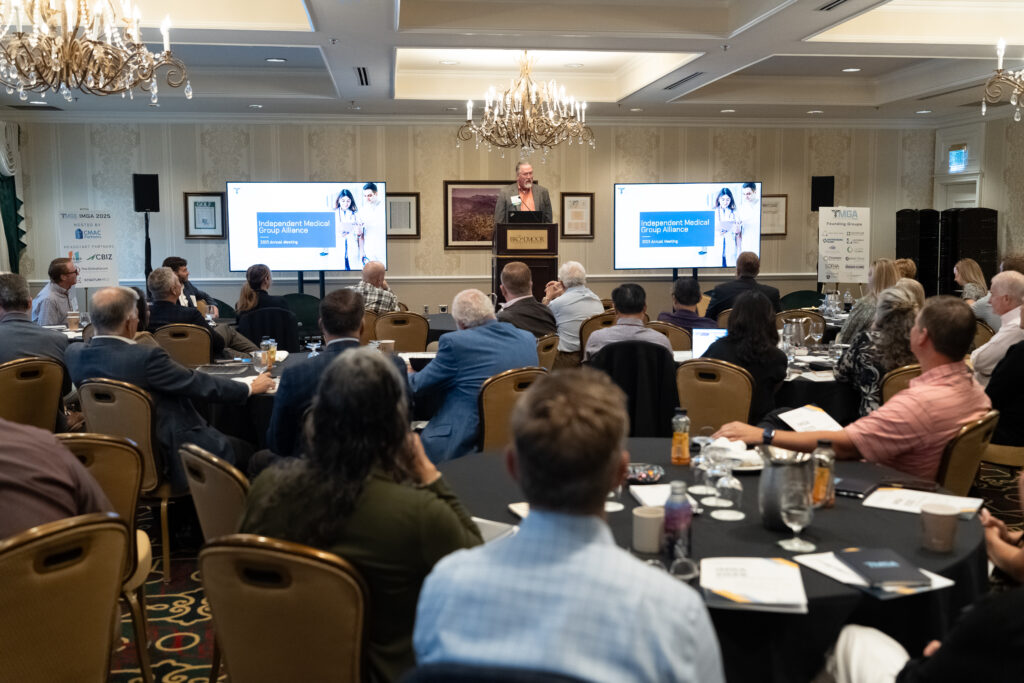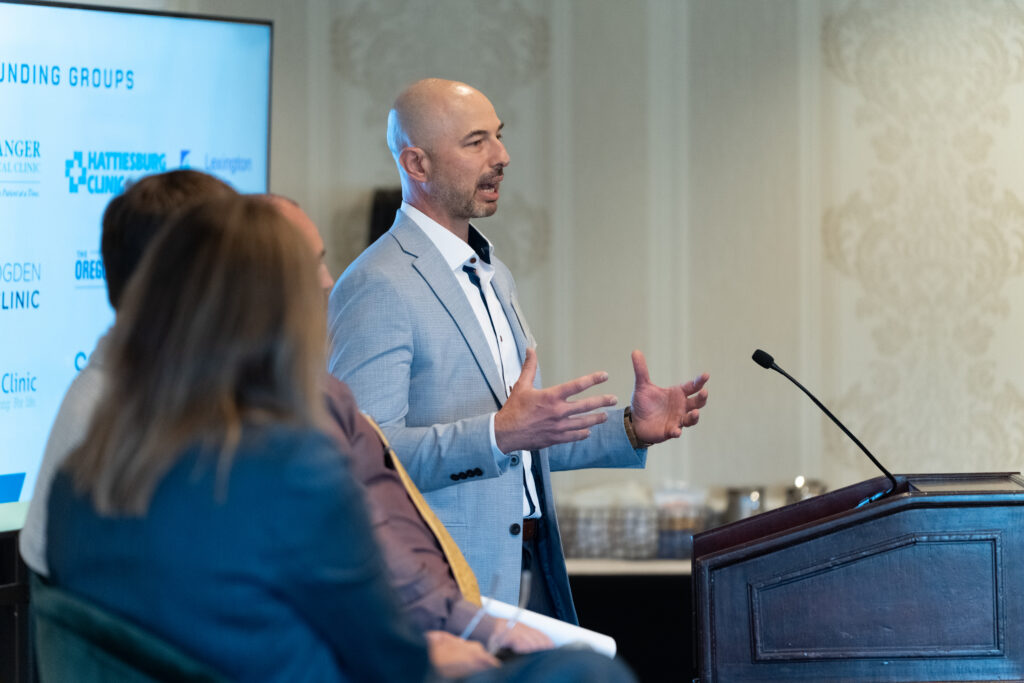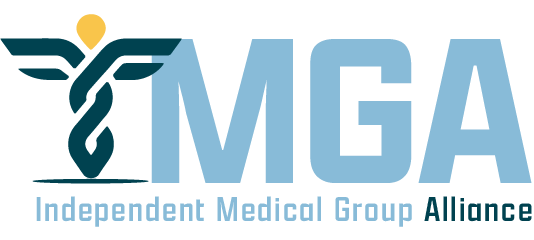IMGA 2025 Annual Meeting




The Independent Medical Group Alliance (IMGA) hosted its first-ever Annual Conclave at The Broadmoor in Colorado Springs, CO, on Wednesday, September 10 – Thursday, September 11, 2025. Physician leaders and executives from independent medical groups across specialties and sizes gathered to unite around their shared commitment to preserving independence in healthcare. Members, their guests, and sponsors enjoyed opportunities for both meaningful discussion and connection, with timely sessions focused on strategies to maintain independence, benchmarking through member-driven data, and executive-level networking. This inaugural gathering marked the beginning of a strong and lasting alliance dedicated to strengthening independent practices nationwide.
IMGA 2025 Topics
→ Enhancing Practice Economics – Part I
Payer Contracting Negotiations & Databases Utilized for Assistance
Explore key strategies groups are using in direct negotiations with payers. Points will include the role of third-party contracting consultants—either to negotiate on your behalf or to equip your team with effective communication tools—and how to leverage negotiation tactics such as the potential to go out-of-network or sell to a hospital.
→ Enhancing Practice Economics – Part II
Managing Overhead, People Cost, Rent/Facility Cost, Supply Cost, & All Other Costs
With inflation and rising costs placing pressure on margins, independent practices must find new ways to manage overhead. This session will explore how groups are controlling key expense categories such as rent, staffing, and supplies—including the role of GPO participation. We’ll also look at innovative solutions being adopted, from leveraging AI in coding and scheduling to implementing online scheduling platforms.
→ The AI Evolution in Healthcare
This session will explore how AI is transforming the healthcare landscape, covering the latest AI tools currently in use and highlighting upcoming cutting-edge technologies. Attendees will learn how healthcare practices in attendance are adopting AI to improve efficiency, enhance patient care, and reduce costs. With human labor being the single largest expenditure in healthcare, the session will also examine where AI may further impact human roles across the system.
→ Physician Recruitment, Retention & Development, and Management –Part I
Starting Salaries, Incentive Compensation & Industry Sources for Salary, Incentive Compensation, and Buy-in & Buyout Structures
As health systems raise starting salaries and offer lucrative employment packages, independent groups must think strategically to attract and retain top physician talent. Explore how practices are structuring buy-ins and buyouts to create compelling ownership pathways, adjusting compensation to remain competitive, and defining their unique value proposition to stand out in a crowded recruitment market.
→ Physician Recruitment, Retention & Development, and Management –Part II
Physician Leadership, Development, and Management
Creating a high-performing, collaborative medical group requires more than clinical excellence—it demands clear expectations, structured engagement, and strong leadership pathways. Explore how groups might formalize participation requirements for internal meetings, specialty education events, and committees to foster accountability and collegiality. Discuss the value of subcommittee involvement as a stepping stone to executive leadership roles, and the importance of onboarding programs.
→ Legislative Challenges in the Healthcare Landscape
The regulatory landscape for healthcare is shifting rapidly, with federal and state-level changes introducing both challenges and opportunities for independent medical groups. In this timely session, an expert will provide an insider’s perspective on key legislative developments across the country.
→ Benchmarking for IMGA Members: Core Revenue & Overhead Metrics
The CBIZ Advisors team will lead a discussion on the operational and financial benchmarks that can help independent groups evaluate performance and identify opportunities for improvement. Drawing from already-submitted member data, the presentation will cover critical metrics and show how leaders can apply these metrics to guide decisions, improve efficiency, and enhance long-term sustainability.
→ Staff Recruitment, Retention, and Development – Part I
Resources for Starting Salaries & Incentive Compensation
As workforce expectations shift, practices are re-evaluating compensation strategies to better meet the needs of both physicians and staff. This session will explore innovative approaches to incentive compensation, including how to maintain competitive physician retirement plan contributions while potentially reallocating non-physician retirement funding into direct staff compensation. With many staff members prioritizing immediate income over long-term retirement benefits, this strategy can enhance retention and satisfaction—without increasing overall cost. In addition, the session will highlight practical resources for benchmarking starting salaries.
→ Staff Recruitment, Retention, and Development – Part II
Working With Local Higher Education Schools for MA Programs & Internships
Attending groups will discuss how practices can partner with local colleges and technical schools to support Medical Assistant (MA) programs, internships, and early workforce development.
